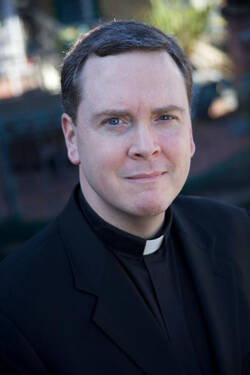At the still relatively young age of 43, I’m pleased to report that I am more than halfway to checking off one item on my bucket list, namely, a visit to all 13 U.S. presidential libraries. As of this writing, I have visited eight of them. Built with private funds and administered by the National Archives and Record Administration, the presidential library system is one of the great repositories of our national memory. Each center not only chronicles the life and work of one of the presidents who have served since Herbert Hoover, but also immerses the visitor in the always fascinating and often turbulent political times in which each man served. Each one is a civics lesson in three dimensions.
The most impressive library, architecturally speaking, is the John F. Kennedy Presidential Library and Museum in Boston. I. M. Pei’s concrete and glass tribute to the virtue of courage, which J.F.K. prized above all others, sits at the farthest point of a small headland that juts out into Dorchester Bay. Its enormous glass pavilion faces the water and, symbolically, into the wind, evoking an image President Kennedy frequently deployed: “It is my firm belief that this nation should sail and not lie still in the harbor.”
On March 30, 2015, a new building will be added to the already-impressive campus: The Edward M. Kennedy Institute for the United States Senate, a 68,000 square foot tribute to the life and work of Ted Kennedy, whose career in the upper house spanned nearly five decades. (Full disclosure: A lifetime ago, when I was just out of college, I worked for the Massachusetts Democratic Party during Senator Kennedy’s successful re-election campaign against a little-known businessman named Mitt Romney).
But unlike the presidential libraries, the institute will focus less on enshrining a political hagiography of its subject and will focus more on introducing its visitors to the artistry and vicissitudes of the democratic process. According to the institute’s web site, the goal is “to be one of the leading organizations working to turn the tide on civic education, providing a portal into the legislative process and a training ground for active, responsible participation in democracy, community and country.” And while the late senator was the most prominent liberal Democrat of the past 40 years, the institute will be rigorously nonpartisan. In fact, two Republicans, including former Senate Majority Leader Trent Lott of Mississippi, serve on its board of directors.
All of this comes just in the nick of time. According to a recent report in The Wall Street Journal, “about two-thirds of students [nationwide] tested below proficient on the civics portion of the National Assessment of Educational Progress in both 2006 and 2010. Only 10 states require a social-studies test to graduate from high school.” Those are sobering if unsurprising statistics. As public schools are forced to do more and more with less and less, civics education has fallen by the wayside, so “a facility that objectively teaches kids about the branches of government and the Senate’s role as a deliberative body is welcome,” as Senator Charles E. Grassley, Republican of Iowa, recently put it.
Perhaps those young people might teach the politicians a thing or two in the process. By almost any objective measure, the contemporary U.S. Senate is a dysfunctional and rancorous body, more a forum for invective than for wise deliberation. Unless that changes, the civic education students receive at the new institute will not fulfill its promise. Our future citizens need to see that their current leaders are actually living up to the democratic ideals etched into the marble. Actions speak louder than words, especially at the top. As Ted Kennedy liked to say, “A fish rots from the head down.”








